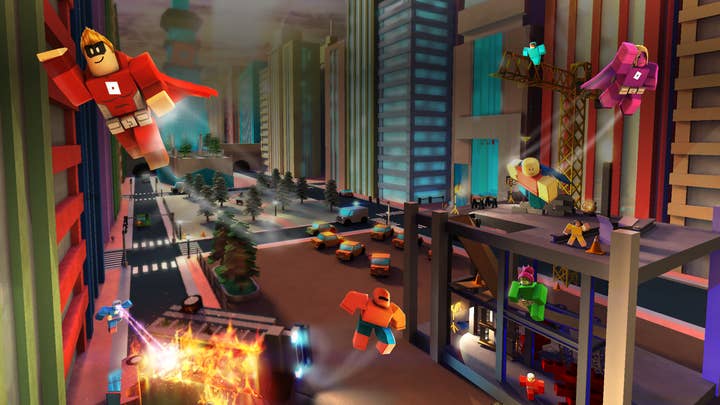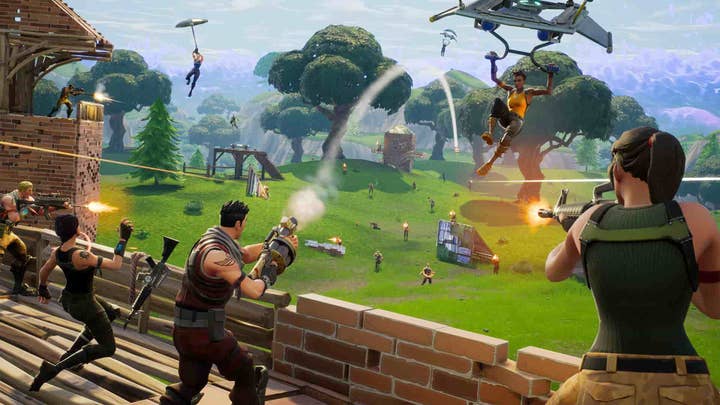We need parents on board if we want to protect their children
Following news of a sexual assault in Roblox and 'addiction' to Fortnite, parents want to cut kids off from these games - but that will only make the problem worse
If you're both a parent and a regular reader of GamesIndustry.biz, then hopefully this opinion is one we share. If that's the case, this article is not directly for you but you can be essential in ensuring it reaches the people who need to read it.
The reaction to the 'gang rape' of a seven-year-old girl's Roblox character last week was no surprise. The girl's mother, Amber Petersen, called for parents to delete the app from their children's devices, to ban them from playing such a seemingly dangerous game, stressing how "traumatised and violated" she felt after watching the incident unfold on her daughter's tablet.
It's a perfectly understandable reaction; parents protecting a child from inappropriate content by cutting off their access. However, leaping straight to an outright ban is not going to solve the problem. Best case scenario: Petersen's heartfelt plea leads thousands of parents to stop their kids playing Roblox. But the game still has 64 million players that will be exposed to this content, including the ones creating it.
"A parental ban is a punishment for the victim, not the offender. A child has done nothing wrong by playing Roblox"
Instead, parents need to work with Roblox - and more importantly for Roblox to be more communicative with parents, beyond just its Parent's Guide on the website - to identify the players that are displaying such despicable behaviour, and to ensure that children have a clear way of alerting the developers when something is making them feel uncomfortable.
I recently attended a cybersafety evening at the primary school where my wife teaches. Roblox was brought up during this seminar, as the former police officers presenting to parents showed a video from a child's in-game session where various characters, while clothed, were seemingly performing sexual acts. Now, obviously, this is nothing the Roblox developers have actively enabled - it's actually a two-person combination of the Lie Down and Push-ups emotes - but the distress among the audience was audible.
Worse still was the example of a game that has been created with Roblox called Adopt Me. This is a role-playing experience in which all players either take on the role of a mummy, daddy or child. It's no different to kids playing happy families at nursery, but the officers revealed this has become a hotbed for paedophiles (as have many games and apps primarily appealing to young people). Again, it's not the game that needs to be dealt with, but these users.
Most distressing was the officers' revelation that, during a poll of all the children in that school earlier in the day, almost none of them said they would tell their parents about this incident if it happened to them, for fear of their parents deleting the app.

A parental ban is a punishment for the victim, not the offender. A child has done nothing wrong by playing Roblox, which by all accounts is a perfectly innocent game - as the vast majority of video games are, save only for those purposefully targeting an older audience. Anyone can make penises out of Play-Doh, but no one wants to ban it
Let's not forget that there have been two violations here. First and foremost, the seven-year-old girl has suffered something that no one should in any realm, digital or physical. But Roblox has been violated, too - its Code of Conduct clearly forbids the creation of sexual content and performance of sexual acts, and yet the players in question were able to craft graphic reproductions of genitals.
"Roblox has been violated, too - its Code of Conduct clearly forbids the creation of sexual content and performance of sexual acts"
Roblox, like Minecraft and so many other games today, is built around the concept of creation, and the freedom that creation affords. The developers behind Roblox already strictly moderate any images or videos that are uploaded into the game, but it's impossible to review everything that its players build using the game's systems - there are 64 million of them, and Roblox certainly doesn't have 64 million moderators.
To add an extra level of approval, to stop players from building new items within the game, would break the core loop and the many benefits it offers. Imagine constructing something out of Lego but not being allowed to play with it until a company representative approved it as appropriate.
This should not be viewed as a defeatist attitude. We might not be able to stop certain users building penises, but we can damn well make sure they are the ones punished for it - and parents can be instrumental in making this happen.
Ensuring that children feel comfortable bringing this sort of thing to a parents, unafraid that they will suffer for doing so, is the crucial first step. Mrs Petersen seems to have accomplished this, as the Roblox incident only came to her attention when her daughter showed her what was happening. But rather than rallying fellow parents against the game, the reaction should be to contact Roblox - and maybe share that via Facebook instead. "Has your child seen something inappropriate in their game? Here's the email address you need - the developers were very helpful."
"We might not be able to stop certain users building penises, but we can damn well make sure they are the ones punished for it"
The onus is, of course, also on Roblox. If children genuinely don't want to talk to their parents, they should feel safe talking to the developers instead. Clear reporting mechanics, perhaps even a tutorial on how to use them, would help the game's audience know how to self-moderate. Yes, some children will find digital genitals amusing, but if enough find them distressing and know how to report that distress it gives Roblox a better chance of catching these inappropriate players before their actions cause offence beyond the game. Again, Roblox has 64 million players; the vast majority should be on the developers' side if they want to keep enjoying the game.
To the company's credit, it has been swift to ban the players responsible for virtually assaulting Petersen's daughter, and has proven on multiple occasions that it exercises a "zero tolerance" policy of such behaviour. Last month, it emerged that an online sex room had been created within the game, and this week The Sun found YouTube videos of further sexual content built within Roblox - all of which has been removed. In fact, in the case of the former, it was removed within hours of creation, but even that isn't fast enough to prevent it tarnishing the reputation of Roblox or the wider industry.

Herein lies another challenge we as an industry face: companies are damned no matter how fast they act. And this is, unsurprisingly, largely the fault of the media.
If you're a journalist reading this, especially if you work for a mainstream publication, I urge you to think more carefully about how you cover these stories. In the Petersens' case, almost every outlet went with a variation on "Seven-year-old girl 'violently gang-raped' in Roblox video game" - a headline that gives no indication that the incident has been dealt with, or that it is rare, or that it is not an inherent part of the game's design. GamesIndustry.biz was very careful when wording its headline as "Roblox bans players who 'gang raped' a seven-year-old's avatar" - demonstrating that the situation has been handled from the off.
In a world of sensationalised, click-dependent media it's unreasonable to expect a sudden shift towards level-headed headlines from the majority of outlets. But this is a dangerous time for the games industry; with widespread stories of Roblox sexual assaults, Fornite addiction and the WHO's gaming disorder classification, it faces becoming a scapegoat towards which the fear and anger of parents is directed.
That's why we need to reach out to parents, to make sure games are accessible to all members of the family - not just to play, but to understand. With confusion and frustration over the amount of time kids are spending on Fortnite, perhaps Epic could introduce a For Parents section or video to the main menu, a short film that talks them through the concept of the game. Roblox, for all its swift action in dealing with the offending players, does not appear to have spoken out to anyone - media or parent - to assure that this is not the norm for its hugely popular title.
There is hope. Only this morning, I read a story about a Devon primary school that wants to ban the floss dance because of its links to that 'violent, mass murder' game Fortnite - and parents have scoffed at this ruling. (The school even referred to a 'nazi dance', which the Fortnite community has since worked out is actually the Cossack dance). But we need to press on with this, to emphasise how harmless video games really are. Yes, Fortnite is about running around an arena and taking down other players, but is it honestly that different to children running around the woods with sticks for guns?
The more parents understand, the more they get involved with this hobby, the more comfortable children will be when reporting abuses of those games - and the better equipped we'll be to stop them.
